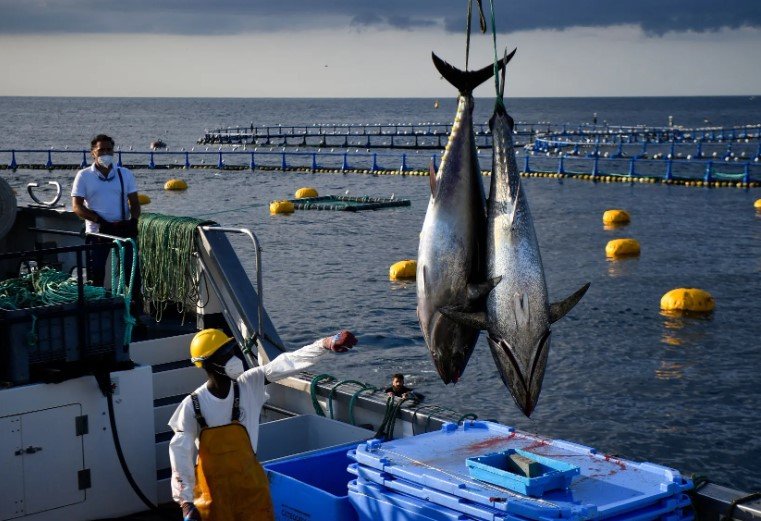A prominent environmentalist has slammed an upcoming bluefin tuna sportfishing event in Cornwall as cruel and destructive, just as these massive fish make a stunning comeback to British waters. George Monbiot, writing in a major publication, compared the catch-and-release tournament to bullfighting, sparking heated debate over animal welfare and conservation ahead of the September 2025 competition in Falmouth.
The Remarkable Return of Bluefin Tuna
Bluefin tuna, once nearly vanished from UK shores due to overfishing, have staged a miraculous recovery in recent years. Warmer waters and better international protections have drawn these speedy giants back to areas like Cornwall, thrilling scientists and locals alike.
This resurgence offers a rare win for marine ecosystems, with sightings increasing since the early 2020s. Experts note that Atlantic bluefin populations have rebounded thanks to strict quotas set by bodies like the International Commission for the Conservation of Atlantic Tunas.
However, this good news comes with challenges. The fish’s return has fueled a boom in recreational angling, raising questions about how to balance enjoyment with protection.
Inside the 2025 Cornwall Tournament
The UK Bluefin Tuna Catch and Release Championships will run from September 4 to 6 in Falmouth Harbour, drawing over 200 anglers and more than 30 boats. Organized by groups including the UK Bluefin Tuna Association, the event promotes sustainable practices, with all fish tagged and released alive.
Participants will chase these powerful predators in Cornish waters, using advanced gear from sponsors like Suzuki. The tournament includes a live leaderboard, entertainment marquee, and even a Q&A with former rugby stars who are joining the action.
Evening events feature prize ceremonies and talks, turning Falmouth into a hub for fishing fans. Last year’s debut event marked a historic moment, blending sport with science through data collection on tuna behavior.

Rising Criticisms of Sportfishing Cruelty
George Monbiot’s recent column has put the spotlight on ethical issues, calling the activity a “festival of cruelty” where anglers exhaust tuna in prolonged fights. He argues it lacks true skill, relying on boats and harnesses for a one-sided battle that stresses the fish.
Critics echo this, pointing to potential harm from overheating and muscle damage during capture. Monbiot highlights videos showing intense struggles, questioning if the thrill justifies the torment.
Supporters counter that it’s far from bullfighting, as no fish are killed intentionally. Yet, the debate has gained traction online, with animal rights groups urging a rethink of such events.
Public sentiment is split, with some viewing it as harmless fun and others as outdated macho posturing. Recent social media posts from conservationists amplify concerns about wildlife stress in recreational pursuits.
Sustainability Measures and Government Role
The UK government has expanded permits for catch-and-release bluefin fishing, issuing 180 licences in 2025, up from 93 the previous year. This follows successful trials showing high survival rates, with regulations mandating quick releases in deep waters.
A key study from Australia suggests an 83 percent survival rate post-release, though real-world conditions might differ. UK rules require reporting any deaths, and partnerships like Thunnus UK gather data to inform future policies.
- Permits increased to support research and tourism.
- All catches must be tagged for population tracking.
- Depth guidelines aim to help tuna recover by diving deep.
Despite these steps, gaps remain. There’s no precise count of bluefin in UK waters, and some experts call for more studies on long-term impacts.
| Aspect | Details | Potential Concerns |
|---|---|---|
| Permits | 180 issued in 2025 | Risk of overexploitation without population data |
| Survival Rate | 83% based on Australian study | Higher mortality possible in UK conditions |
| Regulations | Minimum 40m depth for release | May not be deep enough for full recovery |
| Reporting | Skippers self-report deaths | Potential undercounting due to incentives |
Economic Boost for Local Communities
The tournament promises a major lift for Cornwall’s economy, with visitors flocking to Falmouth for the three-day spectacle. Local businesses, from hotels to bars, stand to gain from the influx of anglers and spectators.
Last year’s event highlighted this potential, creating jobs and spotlighting the region as a top fishing spot. Organizers say it promotes eco-tourism, blending adventure with conservation awareness.
However, not everyone benefits equally. Some residents worry about environmental strain, while others see it as a way to revive traditional fishing towns hit hard by commercial declines.
Expert Views and Broader Implications
Marine biologists stress the need for caution, noting bluefin’s role in ocean health. Dr. Richard Kirby, an ecologist, warns that casual angling could undermine recovery efforts if not monitored closely.
Broader trends show rising interest in big-game fishing worldwide, from the US to Australia. In the UK, this ties into post-Brexit fishing policies aiming to boost recreational sectors.
Looking ahead, the controversy could shape regulations. If survival data improves, events like this might expand; otherwise, bans or limits could follow.
As debates rage, the tournament underscores tensions between human enjoyment and wildlife protection. Share your thoughts in the comments below or spread the word on social media to join the conversation on sustainable fishing.








